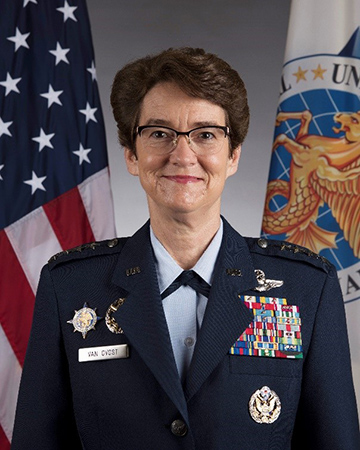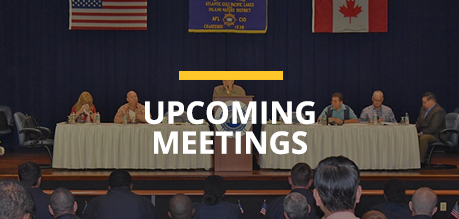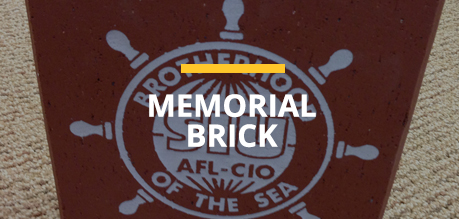
The commanding officer of the United States Transportation Command (USTRANSCOM) recently provided a powerful, detailed description of why the nation must maintain a strong U.S. Merchant Marine.
Gen. Jacqueline Van Ovost gave her remarks via recorded video that was shown Feb. 16, during the first day of the winter meeting of the Maritime Trades Department (MTD) Executive Board meeting near Orlando, Florida. She briefly reviewed the American maritime industry’s centuries-old reliability before underscoring the ongoing need to boost the mariner pool and U.S. shipbuilding capacity.
The video also included remarks from U.S. Army Gen. Christopher G. Cavoli, Supreme Allied Commander Europe, and from Ukrainian government official Oleksandra Azarkhina (the nation’s deputy administrator of infrastructure). Both thanked MTD-affiliated unions for their support.
Van Ovost said that USTRANSCOM leaders “recognize that your success drives our own.”
She continued, “Our country’s heritage as a maritime power has endured since the very founding of this great union. Our ability to protect our coasts, sustain our industries, support our allies, and project power abroad is a national strength built on the water. Because it wasn’t just the conveyances that enabled our increased integration with the world; it was due in large part to the companies, unions, and workers who created a thriving maritime ecosystem.”
The general noted the wartime service of civilian mariners throughout the country’s history along with their ongoing service in times of peace. “This is the legacy that your organization carries forward – one of dedication, hard work, professionalism, and patriotism,” she stated. “This remains true today as your efforts continue to support commercial partners’ ships and those of the Maritime Administration that USTRANSCOM employs to fulfill our global mission. Deterring potential adversaries and projecting America’s military power abroad just isn’t feasible without you.”
After describing the U.S. Merchant Marine’s service in “every major operation or humanitarian event [which] enabled the achievement of our national objectives” since the middle of the last century, she underscored the reduced number of domestic shipyards and the drop in shipboard manpower. Van Ovost summarized the situation with this stark comment: “From the supply chain to the dry docks, we have reduced the margins of monetary risk at the cost of our national security.”
Nevertheless, current developments have returned a spotlight to maritime’s importance.
“Recent global events have once again invigorated the focus and support for the business of deployment, sustainment, and maneuver that only you can provide, and together we deliver,” Van Ovost said. “This includes our current endeavors to support our NATO allies and supply Ukraine with the materials needed to defend their country against Russia’s unprovoked war. With your help, we’ve delivered millions of pounds of ammunition, weapons, vehicles, and artillery systems at a volume that only surface shipping can facilitate. Ukraine’s success on the battlefield is a direct reflection of your support and something we’ll need even more in the future.
“In the complexities of today’s global competition, the fundamental need to retain this advantage has not changed,” she continued. “Neither has the impact of those who labor to ensure its vitality. I argue their importance has only grown, which is why I am such a strong advocate for those involved with the maritime industry…. This is something we cannot afford to get wrong; the stakes are too high and countries like China are leveraging their capacity to produce all manner of ships to erode our once-clear strategic advantage.”
She then pointed out recent components of the National Defense Authorization Act that support the Jones Act, the new Tanker Security Program and other maritime staples that signal “positive changes…. This focus on your industry is a renewed recognition of just how critical your contributions are to the success of our nation. They also represent an increased opportunity for employment, growth for our economy, and decreased risk to national security.”
Finally, she thanked outgoing SIU/MTD President Michael Sacco for his many years of dedicated, effective leadership and support.
Immediately after the video was shown, Sacco recalled the SIU’s involvement with USTRANSCOM’s earliest operations after its founding in 1989. He credited SIU Executive Vice President Augie Tellez for his work with the agency.
He concluded, “This is how we do business. We’re here to serve our country.”
###





Comments are closed.